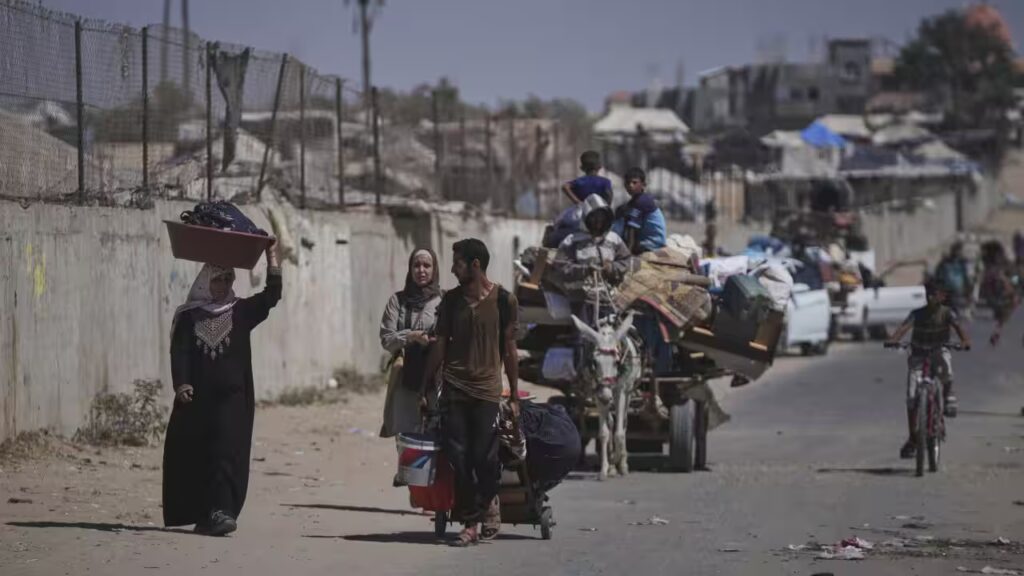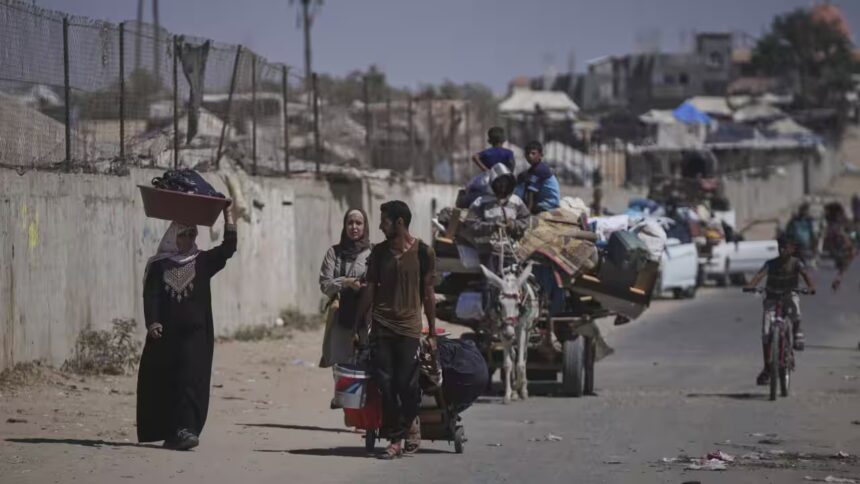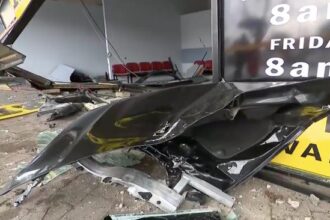Intensified military action in Gaza triggers displacement, deaths, and humanitarian emergency
For the first time during the current war, Israeli ground forces entered Deir Al-Balah in southern Gaza on Monday. According to Israeli sources, the city may be hiding some of the remaining hostages believed to be held by Hamas. This escalation, marked by heavy shelling, forced families to flee westward toward Khan Younis and the coastal strip.
Gaza medics reported that Israeli tank fire destroyed eight homes and damaged three mosques. At least three Palestinians were confirmed dead, and many others sustained injuries. The raid came just one day after the Israeli Defence Forces (IDF) warned civilians to evacuate the area ahead of planned operations against Hamas militants.
Civilians flee, hostages at risk, and ceasefire talks hang in balance
Earlier the same day, an Israeli airstrike hit a tent in Khan Younis, killing five people—including a man, his wife, and their two children—according to medics. These incidents sparked widespread displacement and added new complexity to ceasefire negotiations currently mediated by Qatar and Egypt.
Israel’s military has maintained that it avoided entering parts of Deir Al-Balah until now due to the high probability that hostages are being held there. Sources estimate that at least 20 of the remaining 50 captives may still be alive. Families of those hostages have expressed urgent concern, demanding clear assurances from the army on how their loved ones will be protected during operations.
The IDF claims it is acting with significant force to dismantle terrorist infrastructure. However, the widespread damage and loss of life in Gaza have fueled humanitarian concerns, especially as the region suffers from starvation and limited medical access.
Humanitarian warnings grow louder as casualties increase
Health officials in Gaza warned of “mass deaths” due to acute hunger, which has already claimed at least 19 lives since Saturday. Hospitals are on the verge of collapse, lacking fuel, food supplies, and critical medicine.
The situation worsened further when 67 Palestinians were reportedly killed on Sunday while waiting for UN aid trucks. The IDF responded by saying troops had fired warning shots at what they described as an “immediate threat” in northern Gaza. They argued that initial death tolls appeared exaggerated and denied targeting humanitarian operations.
Meanwhile, the UN agency UNRWA revealed that food stockpiles exist just outside Gaza with enough supplies to feed the entire population for three months. However, aid cannot be distributed safely unless the siege is lifted. UNRWA confirmed receiving desperate pleas from Gaza residents, including their own staff, who are now battling starvation.
Israel responded on Sunday, stating it views humanitarian aid entry as essential and works with the international community to support access. Despite this claim, the ongoing siege continues to obstruct consistent aid delivery.







